In this episode, I join Dr. Paul Jenkins on his radio show, Live on Purpose Radio. Dr. Paul says, “The most common lament I hear in my psychology practice is this question: Why do I do what I do, when I know what I know?” For this topic, Dr. Paul calls together a brain trust to take on this question.
For more about Dr. Paul, visit drpauljenkins.com
TRANSCRIPT:
Welcome to the Rare Faith Podcast, where the solution to every problem is only an idea away and where the same activity, with just a little more awareness, always yields better results. Award-winning, best-selling author, Leslie Householder, brings some of her best information to this inspiring series of life-changing episodes that you won’t want to miss. Show notes for this episode can be found at ararekindoffaith.com
This is Dr. Paul, the shrink, who expands your life.
Today, I had an idea that I think is really going to play out nicely. I have called together a brain trust. I guess we can call it that. I’ve been talking a little bit lately with a few of my associates, talking about a particular problem that we all face or a challenge or a very common obstacle, maybe, to success and prosperity. And, before we get into that topic, I’m gonna introduce our brain trust to you. I’ve got in the studio with me, Shaye Larsen.
Shaye: Hello, everybody.
Dr. Paul: Hey, Shaye. Welcome back.
Shaye: Thank you.
Dr. Paul: It’s been a little while since you’ve been on Live on Purpose Radio.
Shaye: It’s always a pleasure.
Dr. Paul: That’s not exactly true. You’re on almost every week.
Shaye: That’s right.
Dr. Paul: With The World of Ideas Report
Shaye: That’s right.
Dr. Paul: So, you are the idea guru.
Shaye: Right
Dr. Paul: And that’s why you are part of this brain trust today, Shaye.
Shaye: Glad to be here.
Dr. Paul: You got it turned on? You ready to go?
Shaye: It’s an honor. Yes it is.
Dr. Paul: On the phone lines, we have a national best-selling author, Leslie Householder.
Leslie: Hello everybody.
Dr. Paul: Hey. Welcome, Leslie.
Leslie: Thank you.
Dr. Paul: So glad to have you with us, too, and our listeners are going to be very familiar with you by now, because we quote you all the time and that book, The Jackrabbit Factor and another one that you’ve published called Hidden Treasures have been so powerful in my life personally, but in the lives of a lot of our audience and so, we’re just thrilled to have you with us again today.
Leslie: Thank you so much, my pleasure.
Dr. Paul: And you are a part of this brain trust, too, because here’s the thing. Let me just set up this topic and then we’ll have some discussion. In the last couple of years, I’ve become a little bit of a junkie for personal improvement and inspirational content and seminars. You know, that kind of stuff, and I just can’t get enough of it and I go to these events or I listen to a CD set or a program and I get all excited and I think, wow that is so cool and it’s just resonating with me. You know, it’s just ringing and then I go home and I kind of get back into some of my old habits and my old patterns and sometimes things don’t change as much as I thought they would while I was sitting there in the seminar. Now, am I just weird or does this happen a lot?
Shaye: Well, I can tell you from my coaching background. This is a core question that seems to come up through everybody in different language. They don’t always say, “Why can’t I do what I want to do,” but through different language, it always comes up that they have desire. They actually know the answers.
Dr. Paul: Often they do.
Shaye: Yeah, a coach can reveal answers to people and it’s like, yeah, I know that, but help me do it. And a good coach focuses on helping people do things. So it comes up all the time and I feel like the challenge there, the solution to this challenge is epic proportions in anyone’s life. I mean we’re talking about a real problem here, why can’t I do, what I want to do. I know what to do. I know I’ve got to be a better person. I know I’ve got to help these people more. I know I want to get rid of my fear. I know I want to be a better husband, a better provider, a better this and that. Why don’t I just go do it? What stops me? What’s all that stuff that keeps me from doing that, waking up in the morning and being someone that just goes and does it?
Dr. Paul: Um hum.
Shaye: That’s the question and the value to getting this answered in your life is incredible.
Leslie: You know, I’d like to say that you described the scenario of attending a seminar, feeling really great, feeling like there’s changes taking place inside of you and then coming home and very quickly going back into the old habits and wondering if it was even worth the trouble of going in the first place. And, that was my life all through the 1990s, especially.
We were seminar junkies. My husband and I attended at least a hundred seminars over those years and the reason we kept going is because while we were there, it gave us enough expansion. We felt the growth. We felt something happening inside that was good. Then when we’d go home and we’d feel that go away, we thought, well then, we’ve got to get back and do it again, and go again.
And, you know, if you start questioning whether or not it’s a waste of time, you do start questioning if it’s even worth the trouble, because, you know, I’ve had people tell me, “Oh, I don’t want to go to something like that, because the way it makes me feel just doesn’t last.” And, over the years, I’ve come to the conclusion, well you know what. Breakfast didn’t last either.
Dr. Paul: Right.
Leslie: We need to get over the notion that it has to be a one moment that’s going to change everything, although, those moments do happen. I like to compare it with like a combination lock that has, say it’s one of those kinds that takes about 5 or 6 different pieces. The tumblers have to fall into place, one at a time and I look back and I remember all the things that I learned over the years and at each event I learned something new. At each event it was like one of those tumblers falling into place.
And eventually, it happened for me at a point where I was just ready to just throw in the towel and say this is the last one I will ever go to, when that last tumbler fell into place. Gratefully, the timing is no coincidence, but I went to the very end of all I could handle on my own, trusting that if the answers don’t come here and now, then I’m just going to have to figure out how to be happy the way things are, even if nothing ever changes, because I knew what I needed to be doing, but I was having a hard time figuring out why I wasn’t doing it, just like you were saying.
Dr. Paul: Um hmm
Leslie: And so, you know, it was at that event that the final tumbler fell into place, the lights turned on and I suddenly saw everything that we had learned over the years in a whole new light. And it became the catalyst for the change. Suddenly, I did start behaving differently, without the effort that it required, that it took prior. All of a sudden, there was a shift inside of me that said, this is my new me and I am being different. And then the results were different. It was all very simple, but it took a long time to get each of those tumblers into place.
And so I think it’s really important, number one, to be willing to continue studying, continuing your education and trusting that the right pieces are going to fall into place at the right time and literally, two people are going to sit in an event and each of them take different notes because of who they are, where they’re at, the questions that they have already formulated in their minds and even if you were to go back to the same one another time, you’re a different person, you’re going to get something different out of it.
And, it’s not just seminars. It’s the books you read. It’s the mentors you listen to. It’s all of this, so I think that there’s so much to be gained from trusting in the process.
Dr. Paul: And persisting. That’s part of what I heard from you, Leslie. I think you have to go just a little farther than you think you can.
Leslie: Exactly. It’s frustrating sometimes and I get mad about that.
Dr. Paul: Well, by definition, you’re going beyond your comfort zone and that’s a very difficult thing to get yourself to do. I thought a lot about this particular phrase and it’s become kind of a theme for some of the coaching that I’m doing. It is, “Why do I do what I do when I know what I know.”
I think that everyone of us, if you’ll just be honest with yourself, you know things that you’re not applying. And I think that’s true at any level, that you already know some things that you could do to improve your life. And, I joke around this sometimes in seminars that I do. I challenge the attendees. I tell them, “Ok, if I were to send you out there, in the next half hour could you find some way to make your life worse?”
Shaye: That would take about 30 seconds.
Dr. Paul: It gets a chuckle every time, because they were thinking along those lines, but as soon as I suggest that to them, oh yeah, they could come up with a dozen things that would, for sure, make their life worse.
Leslie: That wouldn’t be hard to do.
Dr. Paul: No, not at all, but to change that the other direction, now I could ask you, “Could you go out there in the next half hour and do something that would make your life better?” Well, they can come up with those answers, too. So, why aren’t we doing the things that we know? And that’s the purpose of this brain trust today.
Shaye: Well, one thing I can start us off with is, the answer isn’t gonna come like most people are seeking, what kind of answer they’re seeking. They’re seeking a quick solution to this, a 3-step program or, you know, an answer that makes sense to them right now. And that is why people end up spending so much time and energy looking for what some authors have called ‘magic dust’.
People are seeking this knowledge and I can tell you, the pursuit of success is not an intellectual pursuit alone. However, it’s a lot easier to accept that, that if I can just get these pieces of this puzzle fit together in my brain, all this other stuff’s going to get fixed.
So you’ve got to focus in on this word, this ‘do’ word, this action word. Because here’s the challenge and there’s a lot of success books, a lot of success seminars and I have plugged the majority of them. They’ve been a great part of my life. However, some of them avoid this part of the conversation.
Dr. Paul: This is the hard part.
Shaye: This is the hard part. And the reason that it gets avoided is because it’s not marketable. You’re not going to sell a book right now in today’s world that says “Work Your Hind Off (I’ll keep this PG), Work Hard and Have Success.”
Dr. Paul: Yeah
Shaye: Now, I would probably buy that book, because I would be interested in the truth, but it’s a lot easier to put a book out there that says, ”The ONE Secret, The ONE Little Piece You’ve Been Missing, Here It Is.” And, it isn’t ‘do,’ it’s knowledge. When you get this clicked in your brain, it’s all over.
Dr. Paul: Knowledge is power, right?
Shaye: Yeah, knowledge is power and that is definitely a part of it. I don’t ever want to put out the picture that, you know, let’s forget about the knowledge, the intellectual pursuit here and just skip over and start taking action for no reason.
Dr. Paul: Well, that would be like moving rocks in your backyard. Let’s move a rock to this side, then let’s move it to this side and then back. That’s like Bill Cosby makes fun of his little daughter, who is, the dogs are following her around saying, “Oh, she’s going over this way. Oh, now she’s gonna go over this way and put the water over here. Isn’t this fun? Now, we’re gonna go over here and put the water in.” That’s kind of what it’s like doing without acquiring the knowledge.
Dr. Paul: We’ll be right back.
Music/Commercial: Thank you for joining me for the Live on Purpose Radio Podcast. It is truly an honor to be a part of your prosperity team. Please visit my website, drpaul.org to get connected with other tools for you and your family. There you will find links to my weekly ezine, Empower, harnessing the power of the mind and to the free Parental Power Teleconference that I host every week with my wife, Vicki. You can also check out upcoming events or pick up powerful information products. Feel free to contact me directly with questions, comments or to book me for your company or private event. Email me through DrPaul@LiveonPurposeRadio.com
Dr. Paul: I tell you what, we’re going to start leaving the mics on during the commercials.
Shaye: Don’t do that.
Dr. Paul: That’s some good stuff happening. Leslie, I don’t know if you heard any of that.
Leslie: All I heard was laughter. I’m like, “What am I missing.”
Dr. Paul: Oh, boy. Well, you know what, I was having a chat with one of my friends just yesterday, who was talking about all these multi-level marketing companies that are out there and he’s tried a number of them. Many of us have, you know, especially if you’re entrepreneurial minded. Many have tried these things before and he was saying, “You know, the thing that bugs me the most about this is that they’re all out there trying to sell ‘magic goo’.” And you were talking about ‘magic dust’, well this is ‘magic goo’. Right? You can drink it and it will cure cancer and you can lubricate your car and you can wash your dog. You know? It just does everything. Right?
As you were talking, Shaye, I was thinking, you know, how about ‘magic do’ instead of ‘magic goo’?
Leslie: You know, can I interject on the work topic? I think there are a lot of listeners who are not afraid of work. I think back to all the work that my husband and I put into trying to create a different life for ourselves. I mean literally round the clock, odd hours, burning the candle at both ends like from my book, the dog chasing the rabbit and very few people saw a rabbit and thought we were nuts. And the thing that was most frustrating to me was that the work wasn’t producing results for us. That was where the need for the education came in to help us understand how to do effective work. We weren’t afraid of the work and I think most people aren’t afraid to do the work, but they get frustrated when they do the work and they don’t get the results they want, which takes us to a whole different level.
It’s more than just, why do I do what I do when I know what I know or why don’t I do what I know I should do, when I know what I know. But what about, why do I do what I do and get the results that aren’t what I expect and the point I want to make on this is, the thing I learned is that there is a piece of us inherently designed to keep us safe. It’s the part of us that keeps our heart beating all day long. It’s the part of us that keeps us breathing through the night. I mean if you were to consciously have to remind yourself to beat that heart of yours, how long would you have lasted on this planet?
Dr. Paul: Um Hum
Leslie: You know there is a piece of us that is designed to keep us safe and it’s also the piece of us that has an image of who we are and what we are entitled to. And so, when we do work to accomplish something that is contrary to what that inside belief looks like, the part of us that keeps us safe, that doesn’t want status quo to change, is going to have an influence on the results, no matter how much work we put. So, it’s so important to put the pieces together, the work and the understanding on how to change that part of us that wants to keep us safe and it’s not there to sabotage us, it’s just trying to keep us safe and what safe means to me and anyone of us is that change is not always safe. What I experience now, yeah, I may not like it, but it’s the devil I know.
Shaye: You know, Leslie that makes me think of two things, one concerning ‘do’ and one concerning the knowledge. Concerning the work, somebody that has a challenge getting to work and I know a few of these individuals personally. Some of them come to my coaching programs where they do know what to do. They know what they need to do and it just becomes this matter of, oh I just can’t get in the habit of it. I’ve gotta hire an exercise coach. I’ve gotta hire, you know, somebody to keep me accountable. And, there’s value in that, in having people that help you stay accountable. However, if you look at the root cause of that person, why can’t they get it done, why can’t they stick to it?
One thing I’ve found is, they haven’t counted the cost of what they’re doing. They haven’t taken a moment to step back, and actually, for me personally, it’s more than a moment. It’s a period of my life, where, if I’m gonna take on something, I need to count the cost of that and the principle of counting the cost is, it’s taught in the scriptures, it’s taught in the lessons of some of the most successful people in the world, but to actually sit back and say, “Am I willing to do what it takes to make this happen?” That mental process doesn’t happen quite often for some people because they would see what’s exciting about it. They would see, I want that. Yeah, that looks great. I want to have that. I want to have the happiness. I want to have the wealth. I want to have all that stuff. And then it’s like, What do I gotta do? And they just jump into the process.
For them, it’s a negative response to have to let their brain process the difficulties they might face, the challenges that come up. It’s almost taboo for them to think, oh, I might have to deal with problems. Their mind is set to, let’s just be positive, let’s think positive about this. And there’s a lot of wealth in positive thinking, but it is not negative to count the cost of what you’re about to do and to make sure that you are willing to go through that, because what ends up happening as they start that action, most individuals, this is by my experience, the first serious obstacle that comes up tosses them right out of the water or it becomes a process of wearing them down. Four, five, six, seven trials, I’ve had enough, I’m out, except for the person as, Andy Andrews puts it, that has a decided heart, the person that has taken that time to really count the cost of this and know what this means to their lives. Are they gonna really do this and accept that. Then it’s not a battle every day to make another decision. See, once they’ve made one decision to do this and they’ve done it the right way, they don’t have to wake up the next day, thinking, am I gonna do this. Okay, yes, I’m going to do it. The next day, am I gonna do this. Yes I’m gonna do it. The next day, I don’t know, maybe. They don’t waive that decision. That’s a very tiring process to go through.
Leslie: That wears you out, for sure.
Shaye: The other point on the knowledge side is, if you look at those that are willing to do the work, they’re willing to go through all that and work hard. I know these people, too. They interpret the knowledge different. I think Bruce Lee put it best with this one. I love his analogies because he’s a martial artist and it always applies to some kick, whoom, shoom, flying around. Well, Bruce Lee said that he cannot give you of his cup, meaning he can’t show you how he does what he does, if your cup is full of your own opinions. Or, to put that in more modern terms, if you’re so full of your own opinions, if you’re so caught up with the way that you see the world, you’re not open to a new perspective and that’s what it takes. Some people think as soon as you prove to me that this is different knowledge, then I will empty some of my cup and put it in, but the truth is, you’ve got to let that out and become a student, coachable and at that point you’re open to some new information. So, how do we put these two together is the real question.
Dr. Paul: mm-hmm
Leslie: Yeah. So, Shaye, how do you tell people or what does ‘counting the cost’ mean, when they don’t know perhaps what it’s going to require?
Shaye: This is always interesting to me that several books, coaches and so forth teach the principle of meditation or they teach it as a strategy, when the truth is, the meditation for me or the taking a moment in your life to get clear, that is nothing more than a vehicle of what you’re really doing.
For instance, I’ll put this into an example, if you have a goal to get something and you really want that goal, you know if this is a goal that you’re really gonna do, by measuring it. If the goal promotes you or if you’re promoting the goal and what I mean by that, say you set a goal and you want something really bad and you wake up the next morning and you have to convince yourself to go get it, you probably don’t have a goal that really resonates with you, that you’re gonna go do.
If you have a goal that you wake up in the morning, you’re like, ooh, what I got to do, and the goal is promoting you, the goal is picking you up and you found one that really fits inside your heart and so, for me this meditation and getting clear on yourself, that’s not the strategy that’s just what ends up happening.
The real part, that you’ve got to say I want to do this, is taking a moment of your life, whatever it takes, whatever works for you, whether it’s yoga or meditation or going for a drive or just getting away from your environment, turning the cellphones off and taking a moment to get clear with yourself, praying, whatever your form of getting clear is, that has to happen. You have to take a moment and look at this.
How does it apply to my life and you’re gonna know if it’s bogus if it is just some material thing that’s out there and it really doesn’t apply right now to your life. If, for instance, you want some big, huge mansion and you’re living in a shack, you know what, you maybe got some other challenges. Maybe that is important to your life right now, you know, but my experience is, most the people I work with, when we get right down to it, money, itself, is not on their real list, but it’s a shock to them to find that out.
Leslie: It’s what they think the money will do for them and that’s what you’ve got to identify and get clear.
Shaye: Right.
Dr. Paul: mm hmm
Dr. Paul: And it has to resonate with some greater purpose for you. And as you’re talking about that Shaye, I was thinking, you know, there are times when, it’s not that I wake up in the morning and then think, oh yeah I’ve got this goal. It’s that this goal wakes me up, right? And it’s four o’clock in the morning, right? It’s like, get up, come on, lets go. It’s like my dog wanting to go for a walk. It’s wiggling all over the place.
Shaye: That’s when you know you’ve got a goal that really works with your heart and then you probably naturally are going to start taking time to think about it. You’re gonna start thinking how does this work? How am I gonna do this, instead of you sitting there, oh that’s right, my coach told me I gotta meditate, so I’m sitting there, okay, I’m meditating, I’m thinking. You’re practicing a strategy without working on a root cause.
Dr. Paul: Right.
Leslie: You know, and I tell people that you have to fall in love with the goal and they’ll say, well how often do you have to read your affirmation or your goal statement or whatever it is like that and I’m thinking you know, if you’re in love with the goal, you’re not going to have to remind yourself to think about it. How many times did you have to remind yourself to think about your fiancé?
Dr. Paul: mm-hmm
Leslie: You couldn’t help but think about them and that’s what a goal with this kind of power has. Now I remember watching Rudy, if you remember the football, Rudy, long ago.
Dr. Paul: Oh yeah.
Leslie: And at the time in my life, when I watched that, I loved it. I was empowered by his passion for his goal, but I came away from it really disappointed, because the thought that went through my head is, I wish I could be that passionate about something and I started looking for a dream, because nothing I wanted at that time had that kind of power for me and I didn’t know how to create that. I didn’t know how to find that and maybe when we get back, I’ll tell you what I learned.
Dr. Paul: Great.
Shaye: That’d be great. Thanks, Leslie.
Dr. Paul: We were just left hanging on the edges of our seats. Leslie, you’re talking about this, this passion, just having this, this desire to have something that compelled you to move and to have that kind of passion. You gotta finish your story.
Leslie: Yes, well I forgot what I was going to say.
Dr. Paul: Oh, no.
Leslie: Just kidding. Well you know, like I said, I had watched Rudy. I was inspired by it, but I was frustrated because I wanted to feel that way about something and every time I thought I had my eye on a goal that I could really love, a week later, the passion was gone. It wasn’t getting me out of bed. It wasn’t inspiring me or motivating me to do anything. It was just all I could do just to want to get out of bed and that’s not how you feel when you really have your eye locked on a goal that you can put your heart behind and one thing I learned was that there is a true principle that says, seek and ye shall find, and it was at that moment that I started really looking for a dream with that kind of pull for me.
Dr. Paul: mm-hmm
Leslie: And essentially what it came down to was, beforehand I was looking for goals, but all of a sudden I started looking for a goal that could create that kind of passion in me, and here this was setting a goal to find a goal. That’s a goal. See what I’m saying? The principle works on any level.
So I started looking and what came wasn’t a goal that had that kind of passion for me. Instead, what came my way were experiences that took me through a new kind of set of challenges that I wasn’t really excited about having and yet it carved out a place in my heart for the goal that I could love. And so, you know, I started looking for something that would create that kind of passion. What came from that seeking, was a run of experiences that were very difficult, very, very challenging and started leading me to ask new questions and started putting me in a place that when I finally got a glimpse of what the goal could be, it was the one I would love and you know one of the things I did know is, I wanted to make a difference.
I knew that I wanted to do something that would improve lives and at the time when I had this question when I had watched Rudy, my son, he was a new baby, had had heart problems when he was born and so at four days old he went into Primary Children’s and had heart surgery and the whole experience gave me a whole new compassion for people who stay at the Ronald McDonald House like we did and for people who have children with very severe health problems and when he came out okay on the other side of that I thought, I have a passion. I want to make a bunch of money so that I can donate it to the hospital and a week later it wasn’t there anymore and I thought what is wrong with me that I can’t have a goal that just drives me, you know, and that’s when I asked this question. I want to find something that can make a difference, that really drives me and so it took me through experiences that would give me empathy with a new pool of people in the world and then once I had come out on the other side of that and I got answers on how to solve my own problem, I had so much passion in helping people, who had experienced what I had experienced, come through on the other side like I had, this driving passion to help others overcome what we had overcome.
That was bigger than us. That was something that kept me awake at night. That was something, because I knew the pain and I knew the solution and sometimes you can’t have a solution that you can offer, add value to the world, and bring the solution unless you’ve experienced the pain first and at the time I was watching Rudy, I hadn’t experienced enough pain yet. You know what, I’m not saying that to just tell everybody that they need to have a lot of pain before they will find their passion, but you’re going to find that a passion for you is going to stem from your unique experiences.
Shaye: And, I don’t think we need to be afraid of this pain because if you’ll be honest with yourself, you know, you’re probably already experiencing some pain.
Leslie: Yeah, exactly.
Shaye: And, it’s really tempting sometimes to feel that pain and then to conclude that you have failed and I see people doing this all the time with, “Oh crap, I must be doing it wrong because look at how much pain I’ve got in my life and look at all this. What if you could reframe that to see it as the middle part of a really inspiring story and as you get through that, then you have the resources to really move forward and truly have an inspiring story.
Leslie: And haven’t you met people, who are in the middle of really, really awful, horrible situations who are going through them with an intention already in place to share what they learn on the other side of it?
Dr. Paul: mm-hmm
Leslie: I mean I’ve met people who are in the middle of really atrocious, atrocious situations, but they’ve already determined that one day they’re going to speak to people on how to get through this, even though they hadn’t quite figured out themselves yet.
Shaye: What a great story this is gonna make.
Leslie: Yeah, exactly.
Shaye: I’ve actually asked clients before, please get through this because the world needs your story. The world needs this testament to whatever problem you’re going through.
Dr. Paul: mm-hmm
Shaye: I was thinking while you were mentioning that, of something that happened to me once when I was kind of at a pinnacle in my career, at least I felt like it was at that time. I was starting to have a lot of success, in my definition of it, and was enjoying my work and I was invited to speak at some larger events, you know, thousands of people, not just a few hundred, and I thought that was a great thing and one of my first times speaking in front of a large crowd, there was a couple thousand people in the room and I got up and what I said made them laugh. They were taking it serious and everything worked and I got off the stage and I just felt great and a lady came up to me and she said, “Boy, you’re amazing. I wish I could be like that someday.”
That comment that she made to me made me realize that I sent the wrong message to her. She’d learned that, that type of accomplishment is even further away from her, rather than seeing it closer to her. So when we talk about people working hard, we’ve got to be careful not to distance people who are getting on the path and they feel like they’re having some success, not to distance those kinds of things from us.
When I think of some of the greatest examples in my life and most of them are dead now, Gandhi, Mother Teresa, these kind of people, you know, people that have had a huge impact on the world. One thing that I love to study, I can give you a book reference. If you want to study an amazing life, study the life of Jacques Lusseyran, a Frenchman. He was a blind man, who had an incredible life throughout the World War II, but another one is Gandhi. Gandhi amazes me.
The reason I like to study these kinds of lives is because as the world would put it, they had nothing and they demonstrated incredible power or what we’re talking about today, incredible “do.” They made things happen. Their actions, like when we talk about working hard and not accomplishing much, their actions accomplished incredible amounts and that’s why I like to study them. I also like to study people that the world considers that they didn’t have anything before they started, because it removes any temptation to believe that they received some kind of financial assistance and that was why they had success or whatever. It’s a pure story.
Well, Gandhi is a very interesting story because it’s one of the cleanest stories I know of somebody demonstrating actual power, versus worldly power and we get caught up in trying to know how to do this, what to do, how to put this knowledge together, because a lot of times we’re making a mistake of thinking that we have to demonstrate worldly power. We have to put on a persona that we’re more than we really are. We can’t have that kind of real estate portfolio until we have millions coming from something else. We can’t have that many income streams until we’ve had a lucky breakthrough. Those are all demonstrations of worldly power and they are the weakest form of power. True power comes from a divine power. Don’t know if this is a spiritual forum here, but that’s how it is.
Dr. Paul: Guess it is now.
Shaye: It’s a divine power and if you want to access that kind of power, then you have to understand that it comes through practice of faith the way that faith is truly defined. Faith is defined with work, but work on purpose, as Dr. Paul’s theme is called Live on Purpose. Gandhi was living on purpose. He did not have to ask himself before he went and got beat up by a mob, if it was worth it or not. Is this really worth it for me to go through this? He didn’t have to fast for seven days a couple times and almost kill himself to demonstrate a principle to people. He didn’t have to ask himself, “Is this worth it?”
He understood why he was doing it. He knew this was a thing that he could accomplish in this life and he counted the cost before he did it and no matter what trial came up, he went through it with faith and courage and that’s what it takes for us, too, to go through our challenges, trials, whatever. If we are connected with what we’re doing, why we’re I doing it, and we feel like this is something that we are sent here to do, it really doesn’t matter what trials are gonna come up. It doesn’t matter if the economy is falling around us. It doesn’t matter if your health takes a turn for the worse. You’re gonna have faith and courage and you’re gonna have a great attitude. Yeah, you’re gonna go through hard times. That’s part of it, but the way that you do that, the way you do what you do. Are you a do, do? Are you a do, don’t? Be a do, do.
Dr. Paul: Be a do, do. I’m not sure if we’re gonna be able to market that. You know what, as you’re talking about this, though, really that perspective is so powerful, that this adversity or this challenge that I’m facing right now is the middle part of a very inspiring story and if you have that perspective, you’re not at the end. You’re at the middle and that’s a huge, huge difference.
Shaye: And I would challenge that people that are in that place right now, if they’re feeling like they’re burdened, they’re challenged, they just haven’t taken a moment to count whether this is worth it or not. It might be. They might step back, look how this business I’ve been trying to build for five years, it’s just all over the place and I’m stressed. Maybe they didn’t step back and just decide, is this worth it or not. If they do and they go back they may gain the power that they need to get through that or they might find out, I don’t have anything like this and it’s time to make a change.
Leslie: I’d like to even touch on the point that was made on work that is on purpose and just work. And in my lingo, it goes back to the jackrabbit factor and the whole definition of what that means. If you see a dog chasing a rabbit, that can’t see the rabbit, you’d think the dog was crazy, but on the next level of that, if you see a dog chasing a rabbit and finally catching one and you realize that all of those actions were for the rabbit, you’re not going to go out there and just jump and bark and do all the same work, expecting a rabbit’s gonna appear. That’s work without purpose. You have to see the rabbit before the work makes sense.
Shaye: So work on purpose.
Dr. Paul: Here’s the thing, you guys. We have one segment left. We’re coming up on the end of this particular episode. For me, it’s really important to get some kind of take home from this thing and so I want to invite our brain trust, here, to share what are the take-home messages from this.
So what? You know, we started out with this question, “Why do I do what I do when I know what I know? Why don’t I do what I Know?” We all know more than we’re doing and we’ve talked about a number of different concepts and just to kind of grease the sleds, so I’m gonna review a few of them that have stuck out with me, because I’m taking notes here. I need some help and one of these is ‘magic do’ versus ‘magic goo.’
Shaye: I love that.
Dr. Paul: This is kind of silly, but I’m a silly guy, so ‘magic do’ versus ‘magic goo.’ Be willing to persist and continue and for me, that has to do with realizing you’re in the middle part of an inspiring story and keep that perspective. Have some confidence that you can and will change. Don’t let the giant intimidate you and we didn’t really talk about giants but I was, it’s kind of funny. About a week and a half ago, I took one of my sons out to the west desert in Utah and we were looking for bugs for his ninth grade biology bug collection. Okay, I was looking for some of those big old Mormon crickets, couldn’t find any, but we did find a tarantula and we gathered that thing up and we brought it back and I posted a picture on my email this last week and it’s almost the size of a dollar bill. Okay and that’s a huge, that’s a giant spider, right? Compared to what? Compared to other spiders. It’s really not a giant compared to me. I could squish it easily, but when you compare it to other spiders, it’s huge, right. So we looked at the Giants in our life and it’s always compared to what?
I’ve got here, also, work on purpose and I appreciated your comments about that just before the break, Leslie. Is it just work or is it work on purpose towards some particular end and that makes it a construction project and then count the cost. Like what you had to say about that, Shaye. Those are some of the take homes that I’m identifying. I want to give you guys some time to just kind of summarize what’s sticking out for you.
Shaye: Well, as you go through those notes that you’ve written, I can’t help but think that somebody listening to this is gonna feel like, yeah I’ve heard all that.
Dr. Paul: mm-hmm
Shaye: Be persistent. Is that new? How original, guys, thanks. Work on purpose. These things, you know, we’re looking for some new kind of information. We’re looking for something that really isn’t there and if I could write the best book in the world, unfortunately I don’t think it would be a best-seller, but maybe I could get some coaching from Leslie on that, but if I wrote the best book in the world, I believe it would go like this. It would have a nice cover, maybe a flower or some cool picture on it. You would open it up. There’d be one page and in the middle of that page, it would say, “Have faith.” You turn the page over and it would say, “The end” and then it would say, “It’s up to you.” That’s probably too many words.
Well, that means something to you at different points. When you hear these things, sometimes it’s like, okay I’ve heard that, I’ve heard that, I’ve heard that, I’ve heard that, but depending on where you’re at, you’re gonna hear it differently and someone might say to you, be persistent or count the cost and also you’re going to see the value of it. You’re gonna have a relationship with the value of what this means, so one of the greatest things that I can say, kind of setting up for a conclusion, is it’s important that you go through whatever filters you have in front of you. Continue to go through those filters, because this information is true, whether it works in your brain right now or not, it is true and in your heart you know it is.
This is what we’re talking about. You know what is right, you know this information. Why aren’t you doing stuff about it? Continue to go through that, because these filters will remove themselves. They’ll come off piece by piece. You might have a hundred to get through. You might have two to get through, but the point is, when you get through that, all of a sudden you’re gonna see it and it’s not one of these things, ah, I get it now. When someone comes up to me and they say, “Oh, I get it.” My response usually back is, “Uh, actually you don’t.” I go, “What do you get?” “I get how to be successful.” “Uh, no you don’t.” “Are you being successful right now?” “No, but I’m going to.” “Okay, you don’t get it.” It’s not a pursuit of getting it. You don’t need to get it. What you need to do is continue and when you do get it, when your life is the way you enjoy it, you’re enjoying day by day. Now you can say you get it. That’s great, but you don’t need to have this preamble, this early victory, saying, “Oh I get it all now. I finally got the pieces together and now I can go do it.”
Why do you cut yourself short? It’s almost as though we want to say, “Look, I’m really not interested in life. I just like to be a billionaire and have everything I want. I’d like to skip the whole life part of this, get to the thing.” Well you know, good luck with that one. Have fun there, but I believe that if you really want to enjoy and have happiness, no matter what’s going on, I always laugh at people that, I shouldn’t say I laugh at them, I find it amusing that they buy into the story that circumstances predict their emotions, right, because the truth is, you do have power over those things and so the greatest take-home I can give is, continue. Continue to read, continue to study, continue to ponder, continue getting through those filters, because you’ll get there. You really will, if you’re persistent and you’ll be able to see everything, but if it’s on purpose and you’re going in the same direction, you’ll get where you’re going. Be careful where you’re going.
Leslie: Yeah, I’d have to echo that. That, you know, you’re talking about what would be the take home and essentially mine would be the same message maybe from a different angle and I just go back to the combination lock with all the tumblers in it. There might be a hundred tumblers that have to fall into place, but once you get a nugget, once you have an epiphany or something, that maybe you heard something on this program that answered a question specific to your situation right now, just a little nugget that helps you continue, that helps you have the courage and the stamina to just take one more step and you can know that just because it didn’t all solve everything today, that tumbler is in place. You’re ready for the next one to fall into place and it is a step by step and I don’t even know who said it. I think it was Napoleon Hill that said that you will meet with success in uncommon hours. How does that go? I can’t remember, but it’s one day you’re going to be at a place where you’ll look back and you’ll see that all of those pieces had to fall into place, in that order, for you and here you are and you’ll discover that you’re happy anyway, without the success that you were striving so vehemently for and yet once you’re happy where you are, that’s when the success really starts to fall into place for you and you’ll realize, well you could have been happy with or without it and look what a gift. Here it is.
Dr. Paul: I think we’re deceived often, to think that our life is to pursue this illusive happiness wherever it is, that I’m all about trying to find that happiness and we don’t understand that life is happiness, that when you make that choice, it’s like what you were saying, Shaye, that the circumstances just don’t matter that much and the most inspiring stories I know have that as a central theme. Look at all of this stuff and despite all of this stuff, I found happiness. I found peace. I found joy and if you could experience that, what else matters and the money and the stuff and the success, you know, all of that can be part of the picture, but don’t be deceived that, that is the end goal. If you can choose happiness, that defines success. In my mind, that is the definition of success. You’re gonna choose happiness and you realize that you have the power to choose that.
Leslie: And the truth is, you have all that you need right here in this moment. You really do. It’s just when we get thinking about what we don’t have for next week, that we think we need, we’re already projecting ourselves into a place of lack. Where, in reality, today, in this moment, I’ve had food. I’ve had a roof over my head. I have air to breathe. I have relationships. We have all that we need right now to be happy in this moment. That’s where it begins.
Dr. Paul: Yeah, that’s right. I think those are some pretty good take homes. I hope that all of you, who are listening, find your own take home. Whatever it is that’s ringing with you is the most important thing that we have said or introduced and even if we didn’t say it, if you thought it and if you are inspired to have some kind of an insight, that’s the most important thing for you. Run with that and persist, continue. Now, I don’t have the power to make any of you succeed, but if I can help you to think of the things and to get yourself to do the things that will bring that success into your life, that’s what I want to do.
Dr. Paul: Leslie, thank you for joining us.
Leslie: Been great.
Dr. Paul: Shaye, thank you so much.
Shaye: Thank you very much.
Dr. Paul: We’ll look forward to seeing you guys later on. Go out there and live on purpose.
[Music]
This concludes today’s episode of The Rare Faith podcast. You’ve been listening to Leslie Householder, author of the Jackrabbit Factor, Portal to Genius and Hidden Treasures, Heavens Astonishing Help With Your Money Matters. All three books can be downloaded free at ararekindoffaith.com, so tell your friends and join Leslie again next time as she goes even deeper into the principles that will help you change your life.
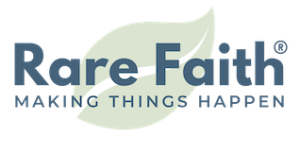




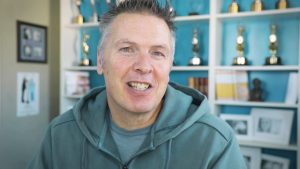
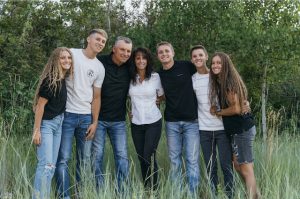




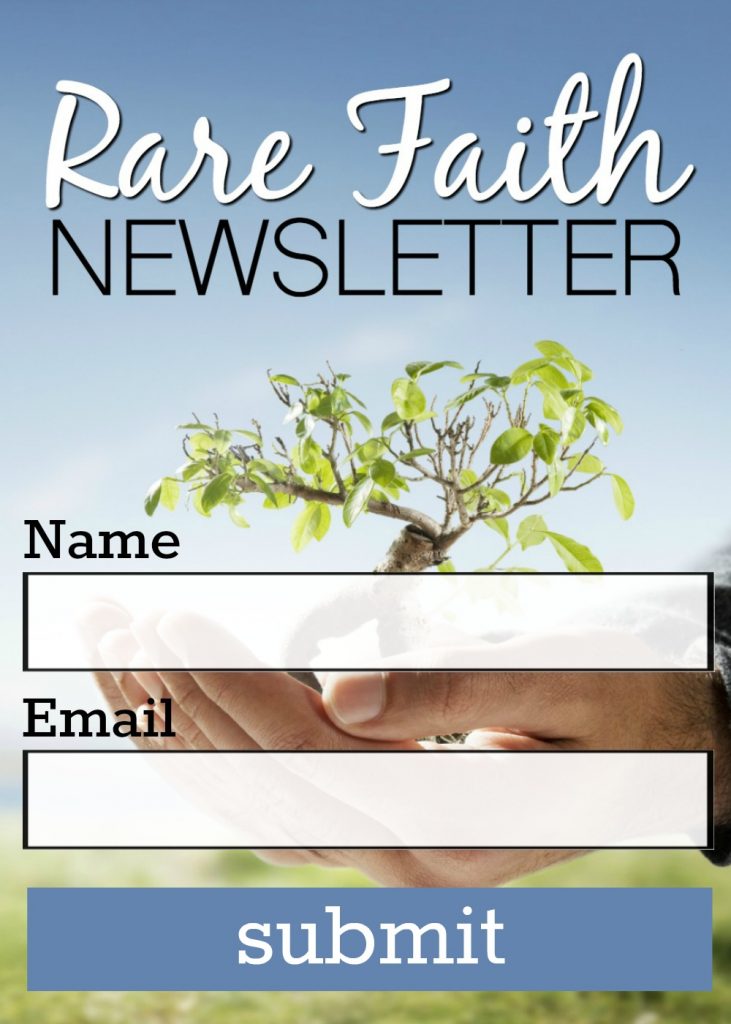


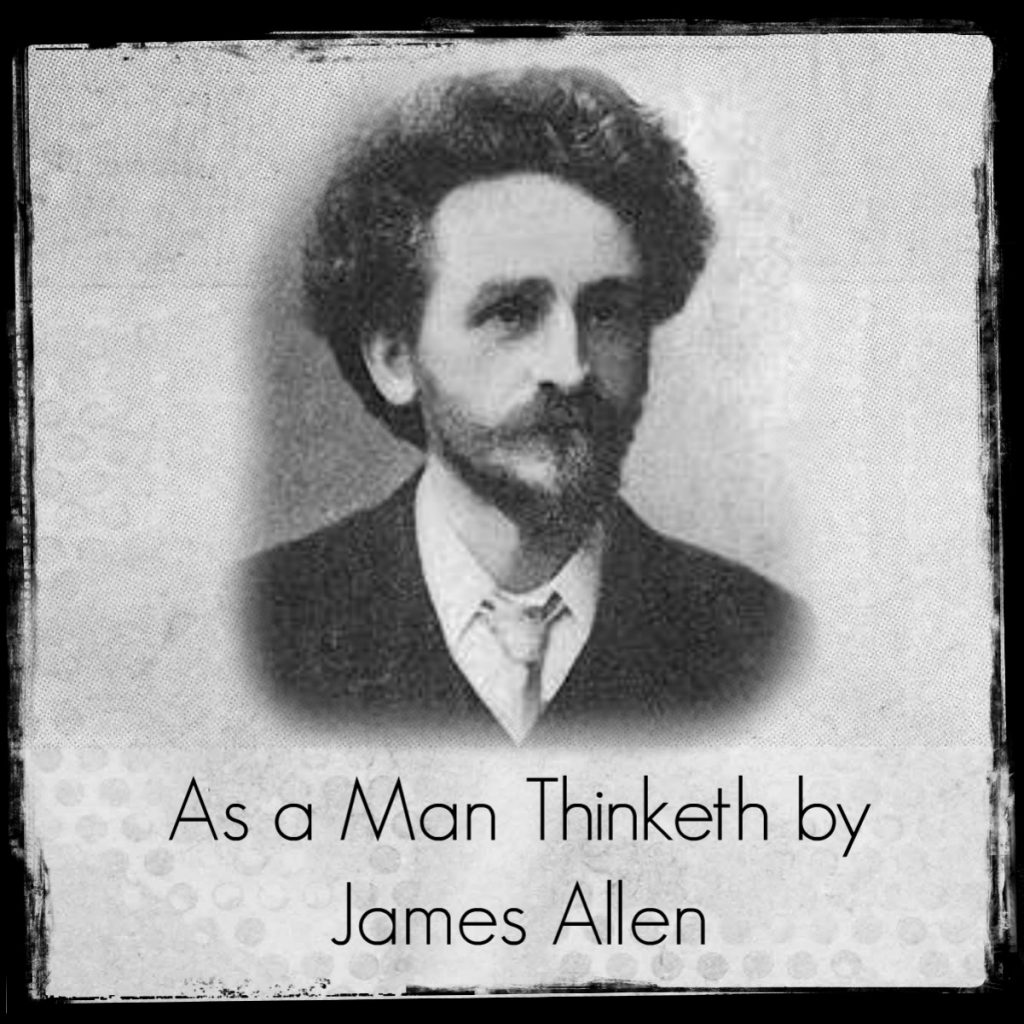


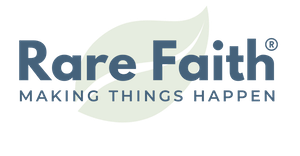
Recent Comments